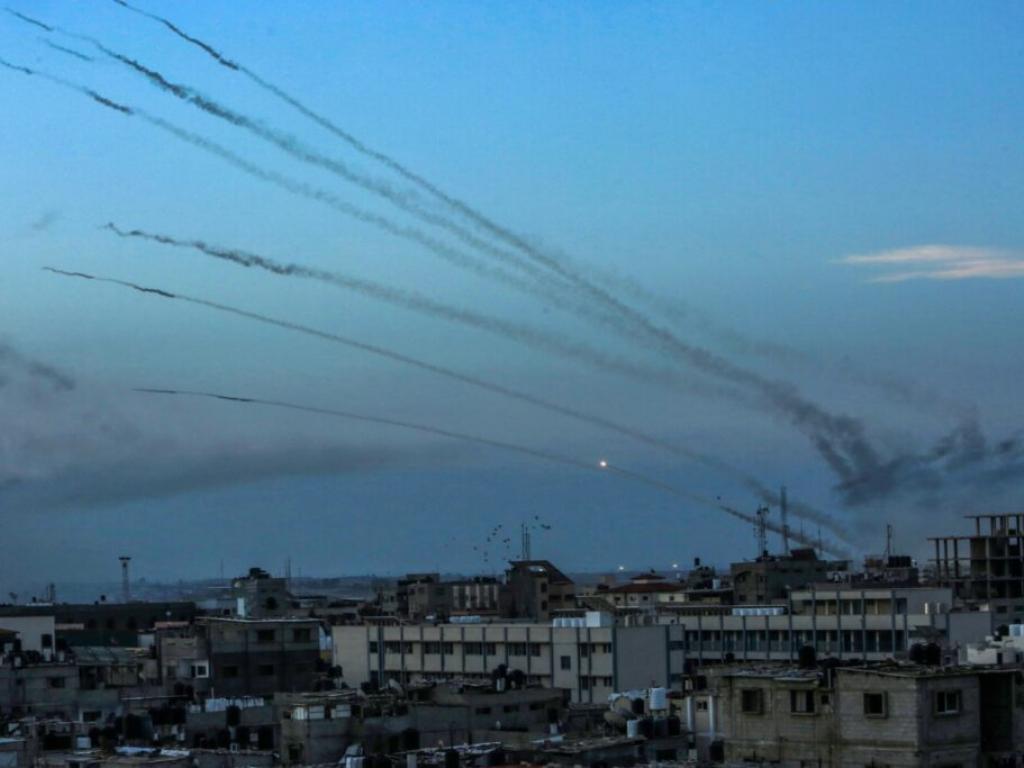
Hezbollah Missiles Intensify Israel Conflict; Yellen Says More Iran Sanctions Possible
The landscape of the conflict between Israel and Hamas is growing increasingly intricate, as numerous international actors are now becoming becoming entangled.
On the domestic front, Prime Minister Benjamin Netanyahu and National Unity party leader Benny Gantz are in the final stages of crafting an agreement to establish a “national emergency government.” This development comes amid the ongoing conflict with Hamas and escalating tensions along the northern border, as reported by the Times of Israel.
Gantz, a former defense minister and IDF chief of staff, has reportedly insisted on the creation of a compact war cabinet with a limited number of ministers vested with the authority to make crucial decisions regarding the conduct of the war. In contrast, Netanyahu has been steadfast in his demand to retain ultimate decision-making power.
Footage and images depicting the harrowing Hamas attack on an Israeli Kibbutz is circulating on social media platforms. The footage vividly illustrates the devastation caused by militants who systematically moved from house to house, resulting in numerous homes being burned or completely destroyed, and the loss of innocent lives.
International Reactions
On the fifth day of conflict between Israel and Hamas, the battle has spilled beyond Israel’s borders, with missiles launched from Lebanon under the orders of the Iranian-backed militia, Hezbollah. The leader of the Iraqi arm of Hezbollah has issued threats, vowing to target American bases should the United States intervene in the ongoing Hamas-Israel conflict in Gaza.
Ahmad “Abu Hussein” al-Hamidawi, the head of the Kataib Hezbollah militia, affirmed their readiness to execute precision strikes on American bases and disrupt U.S. interests if the United States becomes involved in the conflict. Al-Hamidawi also conveyed threats of missile strikes against Israeli targets.
Turkish President Recep Tayyip Erdogan strongly criticized the Israeli army’s actions in the densely populated Gaza Strip, suggesting that Israel’s conduct resembles that of an organization rather than a state. Additionally, Turkish Deputy Education Minister Nazif Yilmaz responded to Netanyahu’s social media post showcasing the bombing in Gaza Strip with a provocative statement, saying the Israeli prime minister will die.
The US Response
U.S. Secretary of State Antony Blinken is scheduled to visit Israel Thursday to express support following the recent Hamas attacks against Israel. The U.S. has also delivered “advanced” ammunition to Israel, with the IDF indicating its purpose is to facilitate significant strikes and preparations for various potential scenarios.
On Tuesday, the White House, through National Security Council spokesperson John Kirby, reaffirmed President Joe Biden‘s message of support and solidarity with the Israeli people. Kirby emphasized the enduring friendship and alliance between the United States and Israel during challenging times.
On Wednesday, Treasury Secretary Janet Yellen highlighted the Israel-Gaza conflict as a fresh source of concern for the global economy. She also hinted at the possibility of the United States imposing further sanctions on Iran in response to Hamas’ attack on Israel, according to the New York Times.
The Israeli shekel slightly weakened by 0.2% on Wednesday, on its third straight sessions of losses.
The Israel major stock market (TA-125), which is closely tracked by the iShares MSCI Israel ETF (NYSE:EIS), fell 0.9% Wednesday after rising 1.4% on Tuesday.
Source » markets.businessinsider.com





